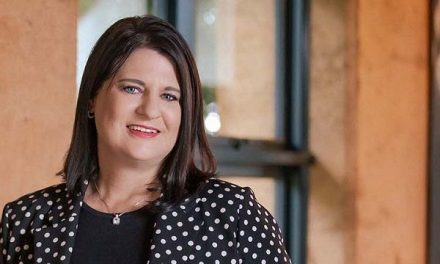
Mauritius is a destination for foreign investment

By Lloyd Green
The island-state of Mauritius is ranked No. 1 in Africa for business climate by the World Bank Group and for good reason. The country’s leadership has targeted the financial sector as a foundation for broad economic growth. As a result, Mauritius, which is located off the southeast coast of Africa, has emerged as a major global investment destination thanks to its political stability, tax structure, strong communications network and robust regulatory system.
Mauritius has worked hard to promote itself as a vehicle for change and development on the African continent. Its nearly 40 Double Taxation Treaties (DTTs) and close to 40 Investment Promotion and Protection Agreements (IPPAs) with sub-Saharan jurisdictions are tangible signs of this kind of infrastructure. Overcoming its lack of natural gas and oil and coal reserves, Mauritius is a jumping-off point for investment in Africa.
Investments originating in Mauritius have flowed to East Africa, Kenya, Mozambique and Nigeria. Mauritius-based investment funds have targeted diverse industries such as hospitality, agribusiness, timber and mining and healthcare. At a minimum, this “Africa for Africa” investment strategy means steering African assets right back into African markets.
To be sure, these investment decisions have produced tangible results for the continent. Earlier this year, for example, a Mauritius-based fund run by the Quantum Global Group bought the Movenpick Ambassador Hotel Accra in Ghana for US$100 million. A year ago, in March 2016, the same fund purchased the InterContinental Hotel Lusaka, Zambia, for US$36 million.
Quantum Global also established a mining fund in Mauritius, and an infrastructure fund that consists of US$1.1 billion dedicated to private equity investments in energy, transportation and large-scale industrial developments across sub-Saharan Africa. These acquisitions are creating jobs and commerce in places with promise in Africa.
One of these Mauritius-based funds is enabling and accelerating the development of Angola’s Port of Caio, an emerging state-of-the art, deep-water port with an investment of US$180 million having the potential to significantly change the trade landscape for Angola and neighboring countries. Parallels with the establishment of the Jebel Ali Port in Dubai (UAE) 30 years ago come to mind. Jebel Ali is the world’s largest man-made harbor and the world’s ninth busiest port. By opening new trade routes, the port has become a catalyst for growth and job creation in the region. The Port of Caio is also projected to reduce the effects of the boom-and-bust cycle of commodities prices that has too often plagued Africa’s economy.
It will be capable of simultaneously handling four large vessels, will house a 630-meter (2,070-foot) container terminal, ship-repair facilities, warehouses, a power plant and a free-trade zone. This one port alone – which will create 1,600 jobs and spur creation of another 30,000 indirect jobs – is expected to slash the unemployment rates in this relatively poor region of Angola by 10 percent.
Port revenues are estimated to reach as much as US$350 million annually, providing additional tax revenue for the government. In addition, the Export-Import Bank of China has agreed to lend as much as US$600 million for the port’s development.
Over the past 50 years, Mauritius has been transformed from a low-income, agriculturally based economy into a diversified economy, possessing one of Africa’s highest per capita incomes. During this time, Mauritius has also attained a more equitable income distribution, greater life expectancy and a decline in infant mortality. The Economist Intelligence Unit classifies Mauritius as a full democracy, a distinction not shared even by Japan, Italy or the United States.
Given all this, it should come as no surprise that Mauritius has emerged as a natural and logical gateway for investment in Africa.
Lloyd Green was staff secretary to the George H.W. Bush campaign’s Middle East Policy Group in 1988, and served in the Department of Justice between 1990 and 1992.











































